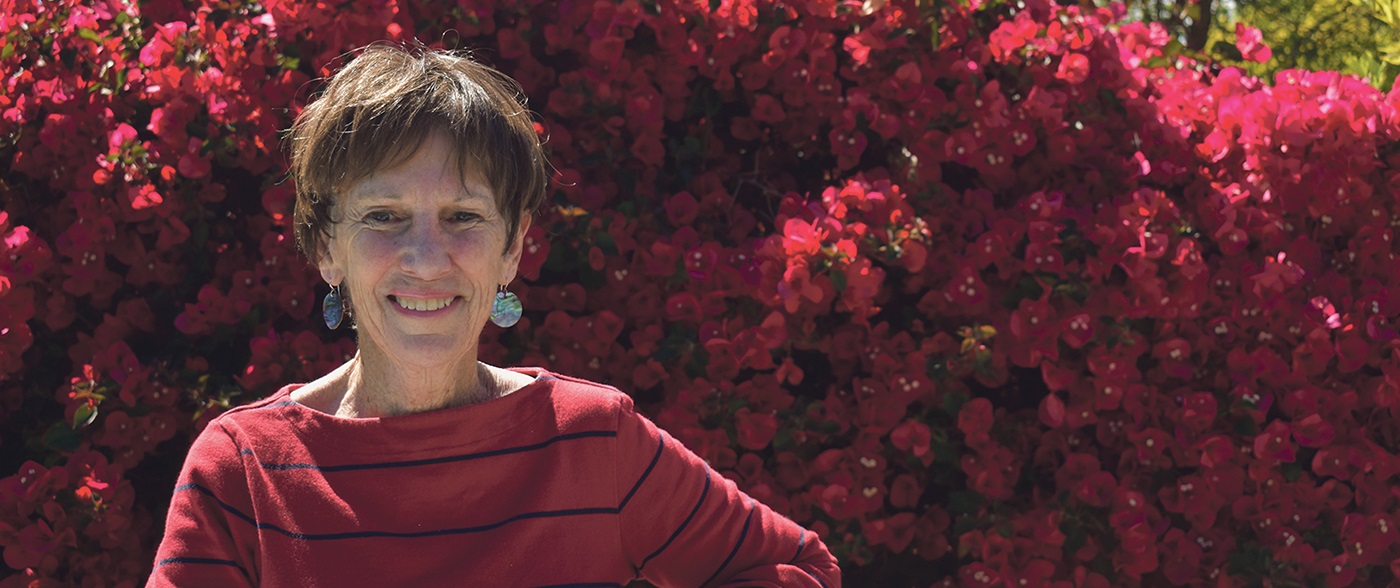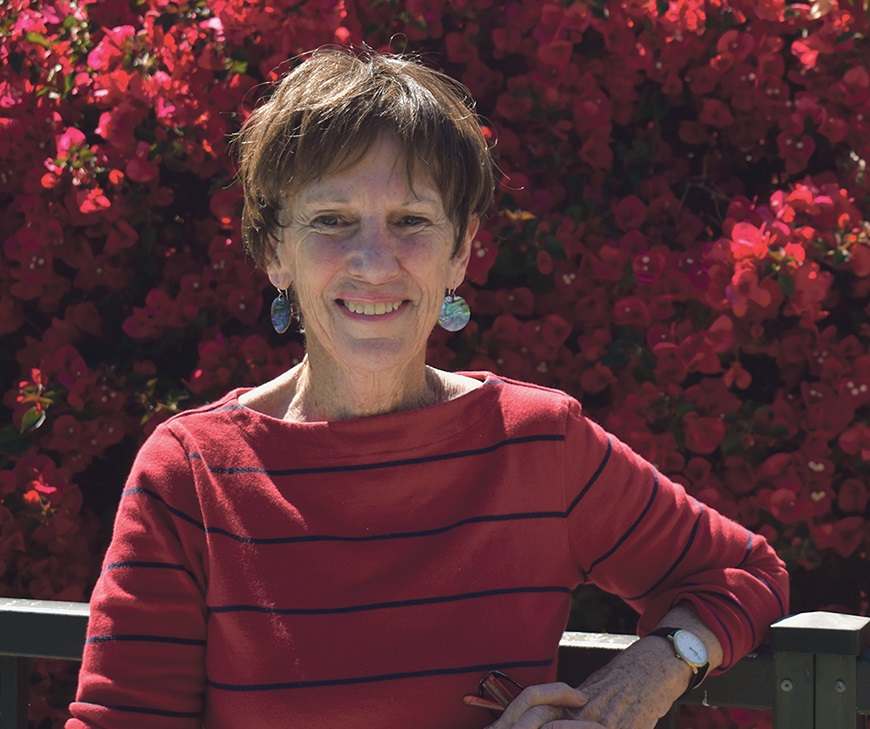
New Year honours often recognise people for service to their community.
Community was certainly at the heart of an award this year for Te Horo woman Mary-Jane Rivers, who was made an Officer of the New Zealand Order of Merit (ONZM). However, what sets her apart from many other award recipients is not so much her work on the ground, but as a facilitator – one who works out how best to strengthen communities, at which she is clearly very good.

Mary-Jane Rivers at her home in Te Horo.
Photo Ōtaki Today
Her New Year award citation said she received the honour for “services to community-led development, governance and education”.
“I was stunned,” she says of the award. “I thought it was our friends having a joke when I first heard.”
Her list of achievements is impressive, and though she rates getting the Inspiring Communities initiative off the ground as a highlight, on a personal level she’s also proud of pushing through chemotherapy during the past year to successfully beat breast cancer. While she has now relinquished her overseas roles, the battle seems not to have slowed her down much.
She is still involved in many organisations throughout the country committed to community initiatives.
She says she has greatly enjoyed her time advising on or managing development projects throughout the Pacific and South-east Asia. Her work has taken her to India, Eastern Europe, Africa, Kazakhstan and Mongolia. Several projects focused on the special role that women could play working together to lift themselves, families and communities out of poverty.
She continues to support a women’s development project in Tamil Nadu, India, which has led to her becoming a board member of the international development NGO, UnionAID.
Mary-Jane was a driving force behind the creation of Inspiring Communities, which was created 15 years ago to focus on sharing the experience, lessons learned and inspiration from community-led initiatives. It has played a vital role in communities finding their own solutions.
“Community-led development recognises that communities are made up of diverse groups, which all have a stake in a place where change is happening,” she says. “These groups can include local residents, central and local government, business, churches, iwi, hapū, funders and service providers. They might all be affected by the change, or have a vision for the way they want their place to develop.”
She says there is an increasing mind-shift towards the power of place-based, community-led development, where authorities are encouraged to collaborate with local people and groups.
“Communities know best about what works for them, what they need to thrive. Sharing local wisdom and practice-based evidence should inform public policy and systems change.”
The desperation of a young mother with two children motivated Mary-Jane to help establish the North Island’s first Women’s Refuge in Upper Hutt. The only other refuge in the mid-1970s was in Christchurch.
“I was working for Upper Hutt City Council and there was nowhere for this woman and her children to go,” Mary-Jane says. “We managed to get her into a safe house, but knew that more formal support for women was needed.”
Despite opposition from some church groups, arguing refuges broke up “good Christian families”, she gained support from the council and other organisations to establish the Upper Hutt refuge. Others followed.
She went on to establish and lead the Social Policy Unit in the Ministry of Works and Development. Its role was to assess the impacts on communities of big development proposals. Initially these focused on energy developments in Northland, Taranaki, Otago and the Chatham Islands. Later the focus changed to government and industry restructuring.
In 1985, aged 34, she became the founding director of policy in the Ministry of Women’s Affairs.
Next she was the first chief executive of the newly formed Citizens Advice Bureau. In that role her networking and interpersonal skills led the organisation through a significant period of change towards national quality standards, computerisation and enhanced policy advice for government, based on local enquiry data.
She later became a freelance consultant.
Mary-Jane and husband Patrick McCombs moved to Te Horo about four years ago after living for many years in Mount Victoria, Wellington.
OTHER STORIES

